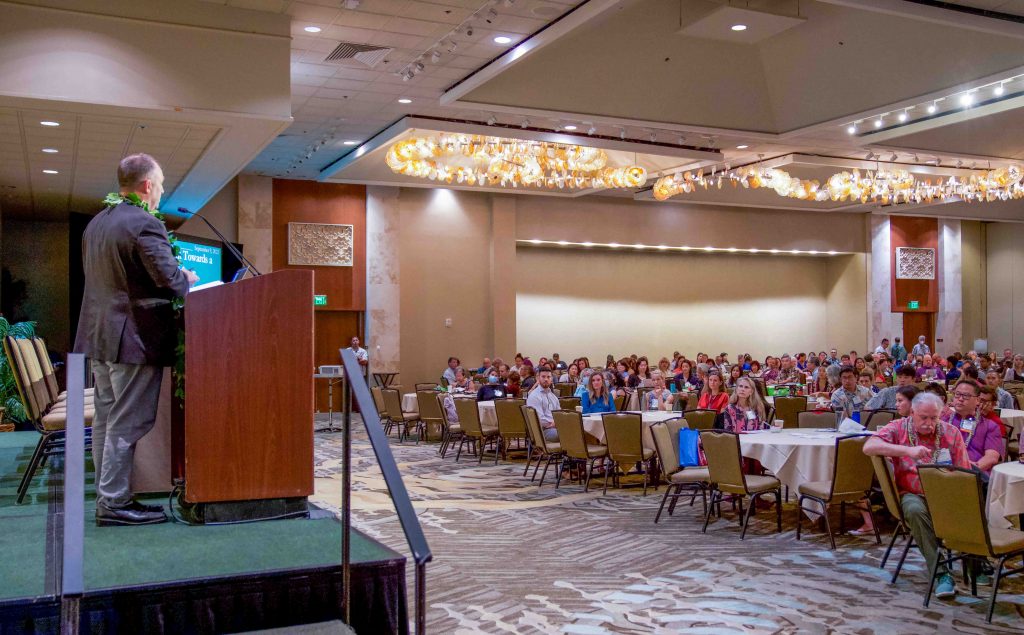HELP is on the way: New $30 million loan replacement program unveiled for Hawaiʻi health care professionals

A new loan repayment program to address the growing shortages of physicians and other health care professionals throughout the Hawaiian Islands was unveiled Saturday by Hawai‘i Gov. Josh Green and the Hawai‘i/Pacific Basin Area Health Education Center.
The state is experiencing a shortfall of about 4,000 health care professionals throughout all islands, with residents in rural areas such as much of the Big Island and those with public insurance experiencing the deficit in care most acutely.
The Healthcare Education Loan Repayment Program, called HELP, is funded by the Hawaiʻi Legislature and was developed by the University of Hawaiʻi John A. Burns School of Medicine, the Healthcare Association of Hawai‘i and the Hawaiʻi Department of Health.
It provides $30 million in fiscal years 2024 and 2025 for educational loan debt repayment to health professionals licensed or otherwise certified to practice in and provide care to patients in Hawai‘i.
The state expects the program will improve recruitment and retention of providers serving these vulnerable population. It prioritizes specialists in primary care and behavioral health, along with those practicing on neighbor islands.
“This announcement is the result of many years’ worth of effort,” Green said in a news release. “I’m thinking back to my time working with colleagues in the state legislature on this loan repayment program and other ways to resolve the shortage of healthcare providers, so it is very rewarding to see it come to fruition so generously funded.”
Green, a medical doctor, came to Hawai‘i through a similar program, the National Health Service Corps, and served the rural community of Kaʻū on the Big Island.
The program builds on the decade-old, federally funded Hawaiʻi State Loan Repayment Program by reaching a larger group of healthcare professionals. In exchange for two years of full-time or half-time service in Hawaiʻi, the following types of healthcare professionals will qualify for loan repayments starting at $12,500 and capped at $50,000.
The eligible amount varies depending on the profession, location of practice, and educational indebtedness. All must provide care to or work for organizations that provide care to at least 30% of patients who are publicly insured.
Eligible professions include:
- Audiologist
- Behavior analyst
- Certified physician assistant
- Certified substance abuse counselor
- Chiropractor
- Clinical laboratory director
- Clinical laboratory specialist
- Community service dental hygienist
- Community service dentist
- Cytotechnologist
- Dental hygienist
- Dentist
- Emergency Medical Technician (EMT)
- Industrial psychologist
- Licensed bachelor social worker
- Licensed clinical social worker
- Licensed marriage and family therapist
- Licensed practical nurse
- Licensed social worker
- Medical assistant
- Medical laboratory technician
- Medical technologist
- Mental health counselor
- Midwife
- Naturopathic physician
- Nurse aide
- Nurse anesthetist
- Nursing home administrator
- Occupational therapist
- Occupational therapy assistant
- Optometrist
- Osteopathic physician and surgeon
- Paramedic
- Pharmacist
- Physical therapist
- Physical therapist assistant
- Physician
- Physician assistant
- Podiatrist
- Psychologist
- Radiology technician
- Registered Dietician
- Registered nurse
- Respiratory therapist
- Speech pathologist
- Surgical assistant
- Surgical technician
- Surgical technologist
Dr. Kelley Withy, director of the Hawaiʻi/Pacific Basin Area Health Education Center, said the current federally funded and state-matched Hawaiʻi State Loan Repayment Program has one of the highest retention rates in the country with 65% of loan repayers continuing to practice in their health professional shortage area and underserved community sites, and 80% of people who complete the program still practicing in Hawai‘i.
“Our program works, and we are grateful to the 2023 legislature for continuing the matching funds for this federal program that targets the highest shortage areas and specialties,” she said. “However, we know there is a severe shortage of multiple physician specialties, worse on the neighbor islands and rural Oʻahu, as well as critical nursing, allied health and behavioral health shortages.”
Dr. Lee Buenconsejo-Lum, interim dean at the John A. Burns School of Medicine, said these shortages were most evident during the height of the COVID-19 pandemic, but continue today.
The announcement was made during Area Health Education Center’s annual Workforce Summit at the Hilton Hawaiian Village on Oʻahu. Nearly 1,000 attended to brainstorm ideas to boost the number of physicians in Hawaiʻi, and many think this program will be the driving force in bringing medical professionals home, according to the news release.
The Hawaiʻi/Pacific Basin Area Health Education Center administers the program, and applications are accessible on its website. Applications are accepted twice a year in October and April, with the awards disburses in January and July, respectively.
While the program is available to all qualifying healthcare professionals, Green especially encourages medical and behavioral health professionals practicing in Maui to apply.
For more information and to apply for HELP, visit the AHEC website or call 808-692-1060.
Sponsored Content
Comments





_1770333123096.webp)


